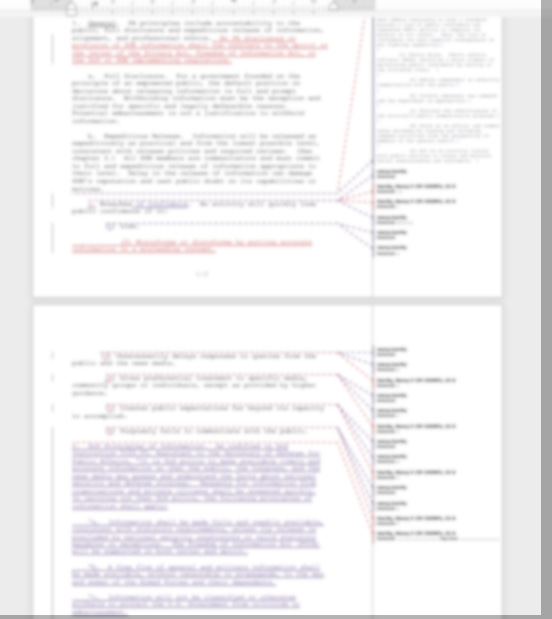What sends you into a downward spiral of doubt and fear that you're going to lose your job?
For me, was minor edits made in red ink
I was reading an article in the Washington Post yesterday about a woman who goes into a downward spiral with every little criticism from her supervisor. She must be some sort of snowflake, right?
I would argue she is not a snowflake. She is exhibiting a common response to an unhealed trauma. What’s more, she’s not sure how to talk with her supervisor about this.
Before I unpack this any further, allow me to define trauma. Trauma is a response to something an individual finds distressing on some level. What is traumatic for one person, may not be for another. What triggers an unhealed trauma is as individual and unique as each of us and the unhealed traumas we carry.
I found myself in a similar situation years ago. I would write something that my supervisor (and his supervisor) would need to sign off on before further staffing — something that usually required a considerable amount of research, coordination and thought. My supervisor would take his time reviewing it and I would receive it back full of minor proofreading edits made in red ink and not a single comment made on the quality of the content or the work it took to pull it together.
Each time I saw the red ink over minor things, I was taken back to all the times when something I did wasn’t good enough for my parents (which was most of the time) and relived all of the feelings of inadequacy and not-enoughness from my childhood. My supervisor had no idea that minor edits in red ink triggered these feelings in me. For that matter, I didn’t realize this either, until I asked myself what my response was really about.
Unlike the woman in the article, I did speak with my supervisor about this. During performance reviews, he always asked what he could being better as a supervisor (and acted on the feedback he received). I mentioned to him that all the red ink over minor stuff was incredibly frustrating for me. “Why don’t you ever comment about all of the research, coordination and thought behind each product? I feel demoralized and frustrated when your focus is on all of the minor stuff without acknowledging that the major stuff is where it needs to be.”
As I recall, he had no idea the effect of the focus on the minor edits without acknowledging the major work behind the product had on me and expressed gratitude that minor edits was all that most of my work needed. Just as important as his response, the act of speaking up about my feelings reduced the amount of stress I felt each time I received a document with minor edits in red.
So what are the take aways?
As an individual, know yourself. Take time to figure out WHY you feel so frustrated/angry/afraid/powerless. Odds are good that the why has nothing to do with the current situation and everything to do with how you feel in the situation takes you back to a time when you were younger where you felt this way. Know that the strategies you used when you were younger and didn’t know as much may not be working for you now.
As a leader, know yourself AND know your people. When you are frustrated/angry/whatever negatives you are feeling around someone on your team, consider the following:
Did you set the individual up for success? Were you clear in your instructions or are you playing some sort of “bring me a rock” game where the individual has to read your mind until you finally accept one of the rocks you’re presented with?
Does the individual have the skills and resources necessary to do the work? Do everyone a favor and stop asking your people to do more with less or to do their tasks without the necessary training and tools.
What beliefs do you hold about the individual and the task at hand? Do you believe that he tried his best or that he is always trying to game the system (and you as a part of that system)? Most people do come to work wanting to do a good job.
What about the situation has triggered your unhealed wounds and trauma? Consider the possibility that you triggered the individual and that you were triggered by their response. This is surprisingly common as we often bring unresolved family dynamics into the workplace.
The good news is that unhealed wounds and trauma can be healed once we become aware of it! For some, simply becoming aware of a trigger is enough to heal it. If awareness isn’t enough to heal your triggers, I can help you heal those triggers once and for all.




